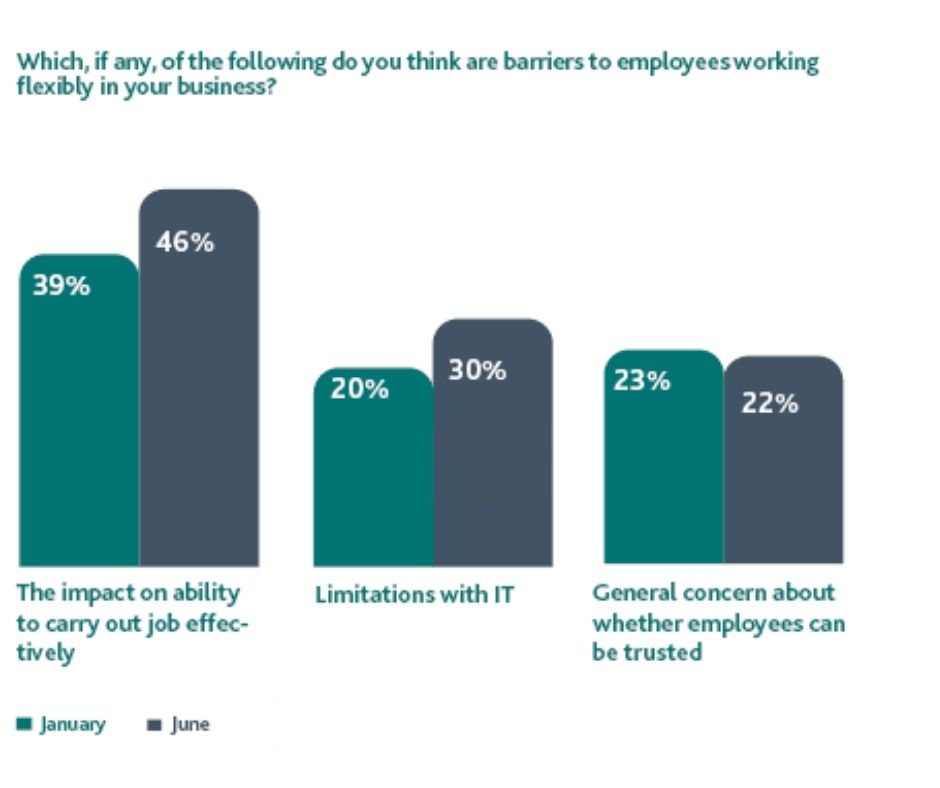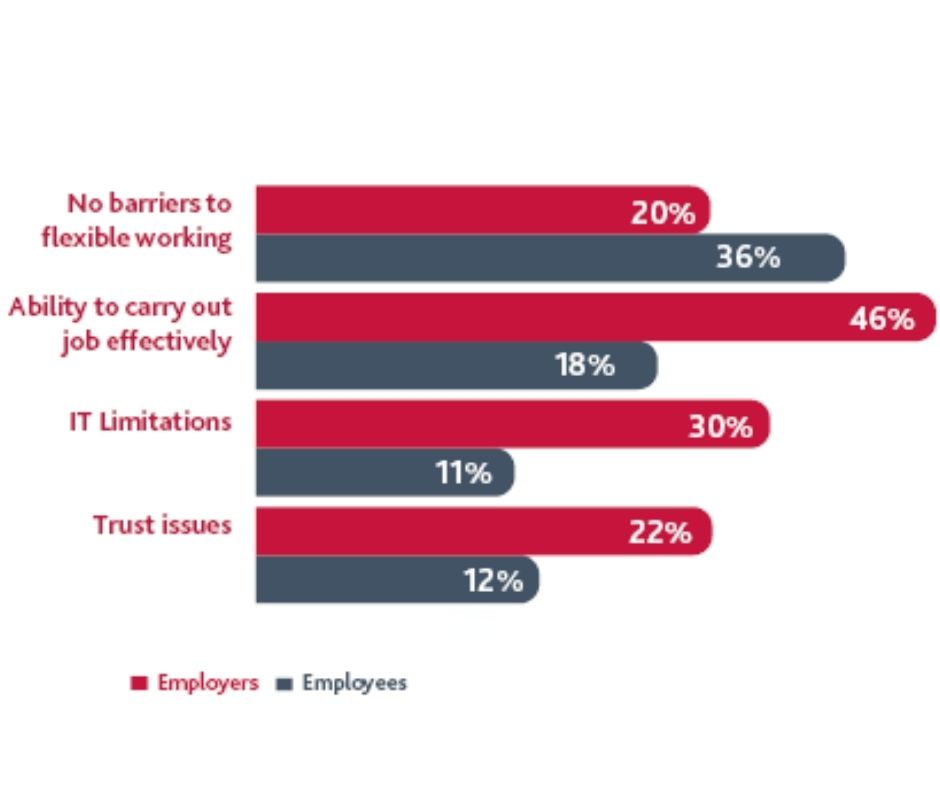
The COVID-19 pandemic has led employers and employees to consider “what will the new way of working look like?” Winckworth Sherwood LLP decided to carry out research into the shift in attitudes towards flexible working six months on since they last undertook research into flexible working.
Both of their surveys have been undertaken with YouGov who have surveyed 500 HR decision makers and 1000 employees.
Previous Barriers Eroded?
When we decided to carry out this new set of research we expected to find that many of the barriers, which had previously stood in the way of flexible working such as limitations in IT, and a lack of trust, would have eroded as a result of the COVID-19 pandemic and large numbers of employees being forced to work from home for a period of time.
The Main 3 Barriers
Interestingly, however, whilst our research shows that there has been a significant drop in the number of businesses who do not offer any flexible working (only 7%) and an increase in employees saying that there are no barriers to them working flexibly (up 8%), the main three barriers to flexible working that were cited in January, namely the ability to carry out the job effectively, concern over whether employees can be trusted and limitations in IT, were still found to be key concerns for employers and even more so now.

Our research also found that despite trust being one of the top three concerns for employers in respect of flexible working, relatively few employees believe they abuse the system with only 12% saying that they are distracted when working from home or are unmotivated.
 The unprecedented impact of the COVID-19 pandemic is shown very clearly in our findings in respect of the long-term operational changes that employers are now considering.
The unprecedented impact of the COVID-19 pandemic is shown very clearly in our findings in respect of the long-term operational changes that employers are now considering.
Office Space
28% of employers said they were considering redundancies, which is unsurprising in a crisis of this scale, but the substantial shift towards home-working is more novel with 26% of employers now considering reducing their office space and 9% considering closing their office completely.
There has also been a huge surge in employers saying they will offer increased flexibility in respect of working arrangements, which is really positive (47% said they planned to offer increased flexibility around working from home and 38% said they planned to offer increased flexibility around working hours).
We found that in general employees would welcome a shift towards more flexibility and home-working. A surprising 62% of employees said that they would be happy if their offices closed and they were asked to work from home permanently on a full-time basis.
Challenges
That said, there are a number of challenges that come with working from home. The main concerns cited by employees were the lack of contact with colleagues and the impact on their well-being.
They also expressed the need to have the right IT and office equipment at home in order to carry out their job safely and effectively. On the employer side, the main concerns were the lack of communication and engagement with employees, less collaboration/cross referrals of business and the negative impact on employee well-being.
Well-Being
Around three quarters of employees felt their employer could improve their home-working experience, for example, by implementing well-being initiatives such as sessions on resilience, offering free counselling sessions and introducing well-being champions and mental health first-aiders.
Read our report for our full results and our recommendations for how we combat some of the challenges around home working.
Bio
Louise Lawrence is a Partner at Winckworth Sherwood LLP advising on all aspects of employment law. She is an advocate for flexible working. Louise advises both employers and employees, and achieves the best possible outcomes for her clients by providing strategic and practical advice tailored to her clients’ needs.








